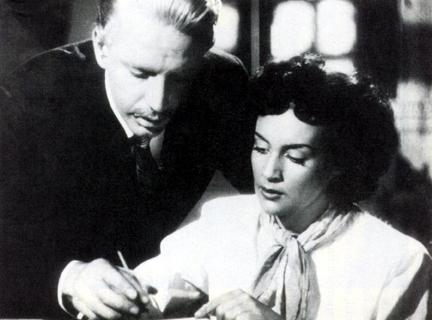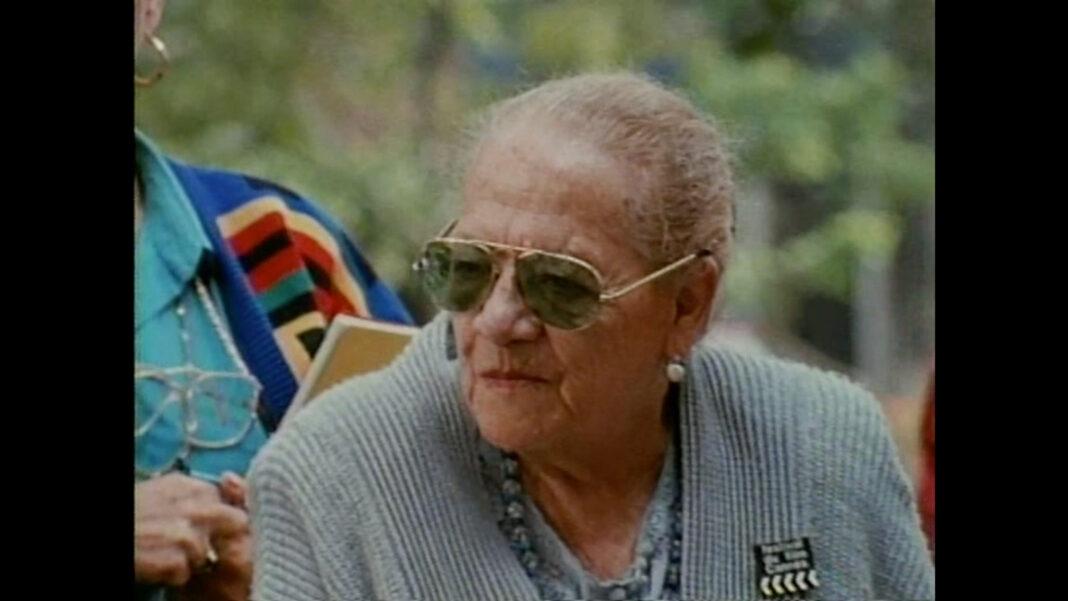Matilde Landeta husband – Matilde Landeta was one of the first woman filmmakers in México, along with Adela Sequeyro. Both wrote the movies they directed, and both could only make a few in a film industry strongly controlled by their male counterparts.
Matilde Landeta Biography
Landeta was born on 20 September 1913 in Mexico City to a wealthy family, the daughter of Gregorio Soto Conde and Matilde Landeta Dávalos. After the death of her mother when she was three years of age, Landeta moved to San Luis, Potosí, where she was raised by her aunt and grandmother.

She then moved back to Mexico City where she continued her studies in a monastery for Dominican mothers. Her love for film was born when she watched the film Old San Francisco during a trip to the United States.
Growing up in San Luis, she would play theater with her brother and friends, going so far as to hitting the other children if they didn’t memorize their lines. Born with the soul of a director, she knew that once she embarked on her film making career, she would direct.
During the Mexican Revolution, when she was about six years old, she witnessed a group of women and children scavenging for rice that had fallen on its way to her grandmother’s estate. Having seen this, Landeta begged for her grandmother to feed the poor some of their stored rice.

This led her to realizing the social class differences in Mexico. This experience left a huge impression on her and grew up aligning herself, and her films, toward the “Left.” Her goal was to show the poverty happening in her country.
Matilde Landeta Career
In 1931, her brother, Eduardo Landeta, began his career as an actor when he got hired to play a secondary character in a film directed by Arcady Boytler. Matilde’s love for film kept her coming back to visit her brother on set. During one of her visits, Miguel Zacarias offered her a job as a make-up artist. In 1932, Miguel decided to give Matilde a chance as script supervisor.
Due to her gender, she had to prove that she was capable of doing the job when applying for the position of assistant director. She was forced to reach out to the Sindicato de Trabajadores de la Produccion Cinematografica in order to get the job.
The struggle for Landeta to become a director was an arduous task that included union opposition and financial problems. At the time, women were rarely allowed to work in departments outside of makeup or wardrobe, but she had an edge that allowed her to become a script supervisor- she could speak English.
In 1945 Matilde Landeta became an assistant director and worked with some of the best directors of the time. These included Emilio Fernández, Julio Bracho, and Roberto Gavaldón. Her exclusive contract with Films Mundiales during Mexico’s Golden Age of Cinema allowed her to learn all aspects of film making by working on some of the most well known films of the time.
Directing demanded a sense of authority, according to Landeta, so she believed the natural progression toward directing was to become an assistant director. In order to do this, she had to confront the union of assistant directors who argued that being an assistant director was no job for a woman. She sought to find a legitimate reason stating her inability to become an assistant director, so she approached the Secretary of Labor. She was never given a reason why she couldn’t become an A.D.

Using Matilde Landeta tremendous sense of humor, Landeta dressed as a man, going so far as to wear a fake mustache to the set of La Guerra de los Pasteles. Upon arriving on set, Landeta began shouting “SILENCE,” just as an assistant director would do before beginning a new take. The decision was made before a general meeting of the union that Landeta could be put to the task of becoming an assistant director, a position she held between 1945 and 1947.
From there, she began her plans to move toward becoming a Director. However, despite working in the industry for many years, she received no support. Production companies refused to finance her films, and the labor union refused to back her as well.
Landeta’s first full feature, Lola Casanova (1948), based on the anthropological novel by Rojas González was set to cost 16,000 pesos. Since she could find no financial support, she alongside her brother and González, began the production company TACMA S.A. De C.V. Landeta and her brother sold their cars, asked family for help and Landeta even mortgaged her house. Landeta chose Lola Casanova as the topic for her directorial debut because she felt strongly about what the story represented.
It dealt with the lives and customs of indigenous Mexicans and a strong willed woman’s effort to mediate their transition into society. However, distribution companies boycotted her film, once she was done shooting it. An entire roll of filmed negatives were lost by the studio and Landeta was forced to wait for the release her film over a year after it was completed. Even then, the studio premiered her film as a B-movie on a Tuesday during Semana Santa.
Matilde Landeta second feature film, La Negra Angustias, was not only boycotted like her first film, but also received very harsh criticism from her colleagues in the industry. From here on out, her name and reputation as a Director began to decline exponentially within the industry. Landeta was to direct Tribunal de Menores.
However, when Matilde Landeta asked Eduardo Garduaño, a member of the National Bank of Cinematography for help, he convinced Landeta to sell her screenplay She took his advice sold the film to director Alfonso Corona Blake who renamed the film El camino de la vida.
They tried to exclude her name from the credits but she ended proceeded to sue them and maintained recognition for her screenplay. However, due to this incident, the National Bank of Cinematography stopped supporting her. Due to her current position, Landeta suffered from a shortage of talent crew and money, which made it nearly impossible for her to continue her work.
In her third film, Trotacalles Landeta deals with the topic of infidelity. Here, a rich banker named Faustino is cheated on by Elena. When asked why Faustino doesn’t redeem the fallen Elena, Landeta responded with her trademark regard for feminine strength. “In general, in films made by men, the men redeem the women.
They forgive their transgressions and move forward with them to the point they turn them into saints. I don’t believe this is true. Women redeem themselves when they want! There is no man that is capable of redeeming them. Instead of making a history of selfless women, I wanted to create a history of women who had done something in life. I wanted to make my films about women I know and feel are true.”
Upon finishing her third film, Landeta decided to take a break from film making. She was hired by an American corporation to translate American television shorts into Spanish for syndication across Latin America. “At first, I was enthusiastic to take a break from all the fighting, get paid well for a while, and recuperate what I had invested [in my films]. I spent over a year making these half hour shorts for the Americans. They were these oddly named shorts called Howdy Doody (1953), a name that in Spanish mean absolutely nothing.”
Matilde Landeta finished translating the shorts and decided to go back to film making. Unfortunately, she was barred from any attempt to make another film. It wasn’t until 1991 that she made her final feature-length film Nocturno a Rosario (1991).
Based on a poem by Manuel Acuña, Landeta modeled the film around Acuña’s poem and a significant moment in Mexican history when Mexico was overtaken by French rule. “What interested me about this history was the manner in which the people were suffering at the hands of the intellectuals who brought this foreign rule.
Matilde Landeta Age
Matilde Landeta was born on September 20, 1910 and died on January 26, 1999. Matilde Landeta was 88 years old at the time of death.
Matilde Landeta Husband
In 1933, Matilde Landeta married a colonel from Sonora who went by the name of Martín Toscano Rodríguez. When Martín proposed, she made it clear that she had a commitment to her career as a filmmaker to which the colonel claimed to have no issues with.
THANK YOU for constantly reading stories on AtinkaNews. You are free to share this story via the various social media platforms . Kindly follow us on Facebook, Instagram and Telegram.


